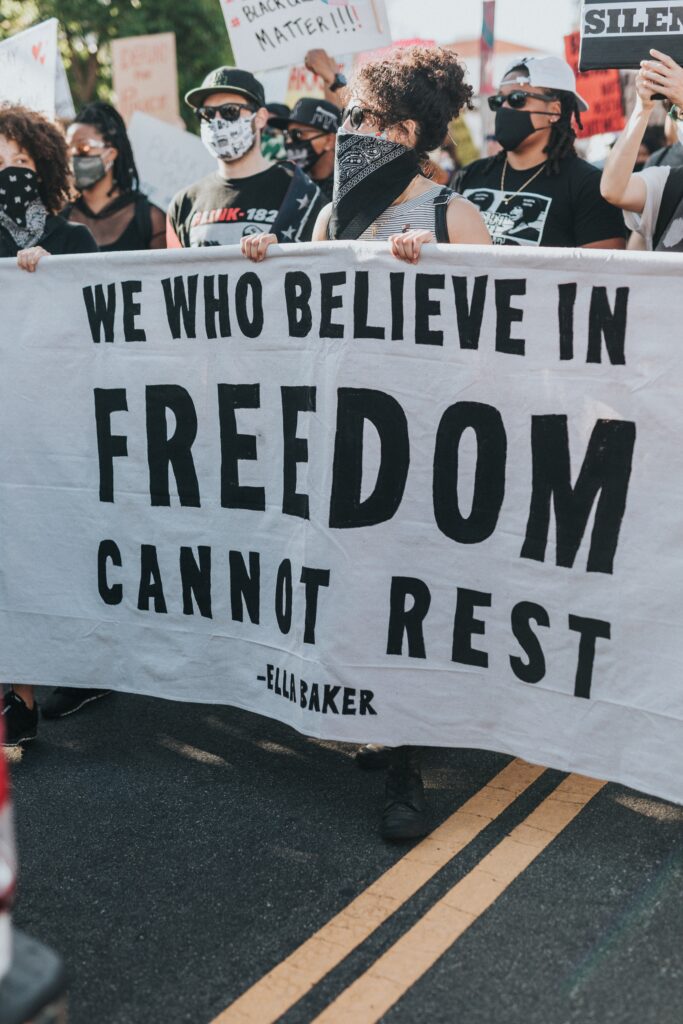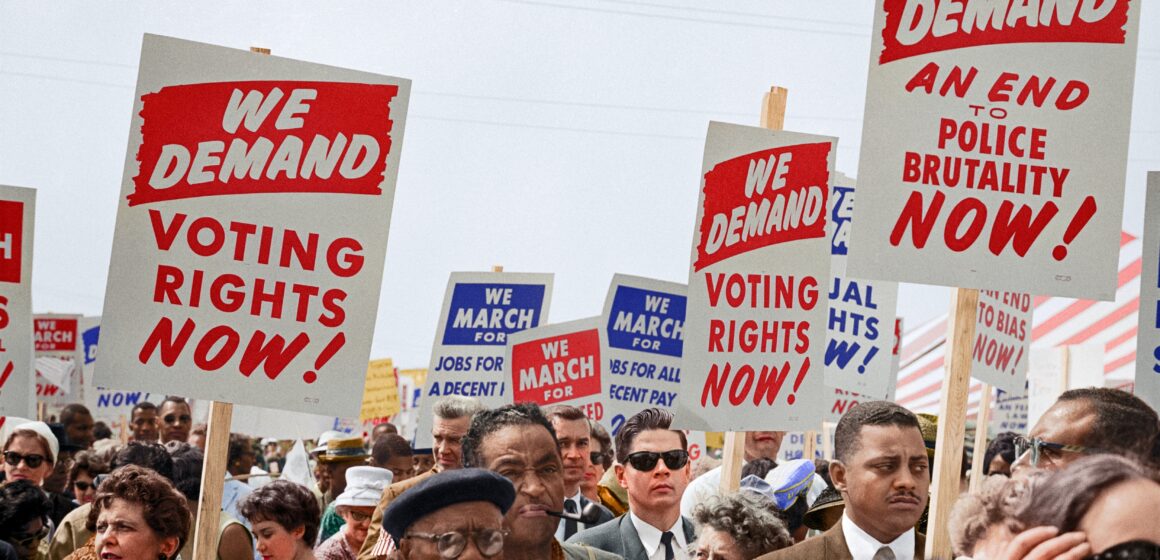Voter Suppression Persists; Judicial Reform Is Needed

A news story in Yahoo News on voter suppression, dating back to 2010 resurfaced in 2020. It is a stark reminder that putting Black people in their place never ended.
Jon Ward, a senior political correspondent for Yahoo News conducted an extensive investigation into a Georgia voter fraud case. Nancy Dennard of Quitman, Georgia was arrested on December 21, 2021. Dennard and 11 of her political allies (all African Americans) were charged with 120 separate
felonies under the authority of then Secretary of State Brian Kemp. The photos of all 12 in orange jumpsuits were on newspaper front pages, broadcast on local TV news and Fox News as evidence of
voter fraud.

After the indictments were filed, former Georgia Governor Nathan Deal removed Dennard and two others from the Brooks County school board in January 2012. At that time, Dennard was voted president of the board, but was stripped of that title.
Prosecutions explored more when Laurie Haggen, the Brooks County school board member defeated by Dennard filed a complaint with the secretary of state because of the large number of absentee ballots, which favored Dennard.
The state of Georgia offered a series of plea deals. None were accepted. For four years, the “Quitman 10+2” lived with these charges holding them down. Lula Smart, one of the twelve, went to trial three times, after two mistrials. After the third mistrial, all remaining charges were dropped against the Quitman 10+2 in 2014.Imagine the legal fees one would undertake for defending these felony charges involving three mistrials.
This story is too familiar to me. In 2016, Ricky Nelson Jones and I ran in a contested judicial election for Anne Arundel County Circuit Court judge in Maryland. As soon as the four sitting judges became aware of my candidacy, the “putting black people in their place” tactics began.
At the time I filed my certificate of candidacy, the Anne Arundel County Circuit Court consisted of an all-white judiciary for more than a decade (2005-2016). For more than 368 years, there was never a woman of color
appointed to this bench.
The judicial nominating commission had no shame about keeping things
this way when they only shortlisted white applicants for more than a decade for judicial vacancies on this court. Governors were complicit in this short listing of whites only by stacking the judicial nominating commission with a majority of white members.
The intentional tactics to remove me from the ballot began in 2016. A surrogate for four sitting judges, filed an “ethics complaint” with my employer, specifically demanding that I be fired for running in a partisan primary. I was not running for a partisan office and the ABA Judicial Code of Ethics acknowledges that judges need not resign when running for judicial office. Nonetheless, I was fired.
The case remains on appeal in 2020. The press had a field day making sure my name and reputation was plastered all over front pages of newspapers, and detailed in ballotpedia. The four sitting judges’ election materials gladly spread misinformation that I was fired for an ethics
violation even though the case remains pending.
Efforts to stop black judicial candidates didn’t stop there. Rev. Ricky Nelson Jones challenged the disparity by filing a lawsuit against Maryland’s Administrative Office of Courts challenging the
racial inequities in this country’s judiciary system. The press only acknowledged Rev. Jones as the candidate who sued the courts.
This disparaging experience as a judicial candidate seeking to break racial barriers in the judiciary is a reason why legislators should not act quickly to eliminate contested judicial elections. Once that right to choose trial court judges is foreclosed or eliminated, voters will likely not ever get it
back. It places too much control in the hands of mostly white governors and legislators.
Voters in reality are robbed of their opportunity to weigh in on who serves as their trial court judges who preside over critical matters like sentencing and weighing credibility of witnesses such as police
officers and other law enforcement.
Voters would then be faced with only the option to vote yes or
no to retain a judge, with no option to choose someone else. The power to choose a judge is enormous. These judges decide if law enforcement should be held accountable for police misconduct.
Many write about the current topic of police reform since George Floyd’s death, but judicial reform is also necessary. When a judicial system waits 368 years to place a woman of color on its trial court bench, that
system has already shown you who they are. They are just people who boldly practice exclusion with no shame or accountability and are proud of it.
The same holds true of not having Hispanics or Native Americans or Asian Americans or Pacific Islanders on the bench in Anne Arundel County and
other counties. The judicial nominating commissions should never be trusted to do the right thing. Judicial reform to change this is long overdue. A task force should be established to make recommendations on how to eliminate implicit bias in the judicial nominating commission selection process.
More transparency is needed so commission members do not have conflicts of interest when deciding on judges. Every candidate should be evaluated on their knowledge of sentencing disparities and explain how their record would, could or does avoid this.
In 2017, Governor Hogan appointed the first African American female to Anne Arundel County Circuit Court. After making that appointment, the governor’s trial court judicial nominating committee as well as the appellate judicial nominating committee went back to practicing exclusion
when short-listing applicants for the trial court and appellate benches in Anne Arundel County. No people of color were short listed in 2018 through 2020.
The chief judge of the Court of Appeals of Maryland, Chief Judge Mary Ellen Barbera, has shamefully endorsed the elimination of contested judicial elections. Year after year, she brings in a few African
American judges who have fared well in the judicial nomination process to encourage other legislators to co-sponsor legislation eliminating contested judicial elections.
She is now seeking to make her case before the Maryland legislature again this year. She appeared in January before the Senate Judicial Proceedings Committee in support of Senate Bill 295. Similar bills are also before the House Judiciary Committee. Voices will be heard on House Bills 0035 and 447 on February 24, 2021.
Black bar associations in particular should be above this manipulation and not endorse such legislation. Why? It’s because having the right judges on the trial bench (regardless of what race they are) is critically important to having equal justice under the law. They should know the devastating outcome, if contested judicial elections are eliminated. Diversity matters!
By Claudia Barber, former judicial candidate for judge on Circuit Court for Anne Arundel County.


